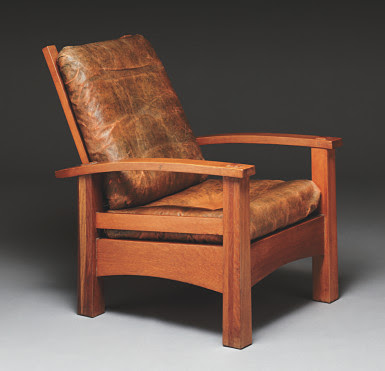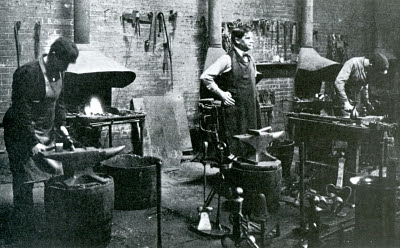Gustav Stickley: American Craftsman (Stratford, 2020)
I judge art documentaries by one of two standards. Does the film tell me something I don’t know about the subject? Is it entertaining or engaging in its own right, regardless of its subject?
Gustav Stickley: American Craftsman gets an affirmative response for the first question but maybe not the second. Consequently, I recommend it, but your mileage may vary depending on how interesting a sixty-seven-minute documentary on a furniture maker sounds to you.
Even at sixty-seven minutes, the documentary is front-loaded. The best parts are the academic explanations of the Arts & Crafts movement and how it grew out of a philosophical response against industrialism. The irony of that fact is that industrialization has come to mean that the common person cannot afford the sort of individually designed and handmade pieces that Stickley’s name came to symbolize.

chair_Seibert_v1, 7/17/09, 1:31 PM, 8C, 6000×7060 (0+371), 100%, Custom, 1/8 s, R73.2, G40.7, B39.0
The descriptions of the furniture’s aesthetic qualities is also well done, if somewhat belabored. We are told that while it is customary for furniture to have its joints and screws concealed, Stickley’s furniture leaves them visible. This allegedly draws attention to the process of the piece’s manufacture and is thus more than just an artistic signature.
I could have done without some of the biographical details of Stickley’s life. Even those interested in design may not be aware of Stickley by name or reputation, so it’s not as those these biographical details carry the same inherent interest as those of a master of painting or music. Neither is the connection between biography and style always clearly established.
But even with those criticisms, the film works as a primer for those who have ever wandered through an antique store or leafed through an auction catalog and wondered why some furniture ends up on a trash heap and other furniture ends up in a museum.
In addition to building furniture, Stickley co-founded Craftsman Magazine in the early part of the 20th century. The film quotes liberally from the magazine’s issues, underscoring that there was a philosophy behind the pieces. It was especially interesting to see how the social and artistic movements of the Victorian period influenced America at the turn of the century. The film notes Ruskin as one of Stickley’s inspirations.
Gustav Stickley: American Craftsman opens is now showing in virtual theater bookings across the country. North Carolina residents can support the Chelsea Theater in Chapel Hill by purchasing tickets to stream the film through the theater’s box office at: https://thechelseatheater.org/

